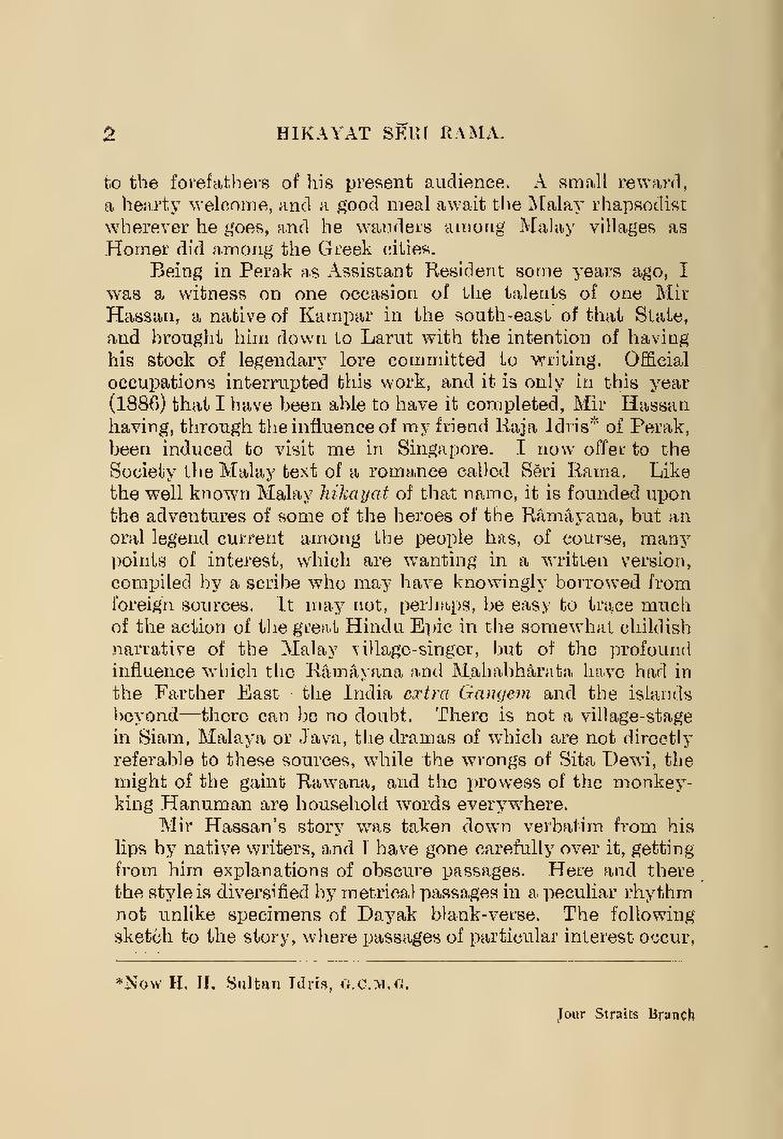to the forefathers of his present audience. A small reward, a hearty welcome, and a good meal await the Malay rhapsodist wherever he goes, and he wanders among Malay villages as Homer did among the Greek cities.
Being in Perak as Assistant Resident some years ago, I was a witness on one occasion of the talents of one Mir Hassan, a native of Kampar in the south-east of that State, and brought him down to Larut with the intention of having his stock of legendary lore committed to writing. Official occupations interrupted this work, and it is only in this year (1886) that I have been able to have it completed, Mir Hassan having, through the influence of my friend Raja Idris[1] of Perak, been induced to visit me in Singapore. I now offer to the Society the Malay text of a romance called Seri Rama, Like the well known Malay hikayat of that name, it is founded upon the adventures of some of the heroes of the Ramayana, but an oral legend current among the people has, of course, many points of interest, which are wanting in a written version, compiled by a scribe who may have knowingly borrowed from foreign sources. It may not, perhaps, be easy to trace much of the action of the great Hindu Epic in the somewhat childish narrative of the Malay village-singer, but of the profound influence which the Ramayana and Mahabharata have had in the Farther East the India extra Gangem and the islands beyond there can be no doubt. There is not a village-stage in Siam, Malaya or Java, the dramas of which are not directly referable to these sources, while the wrongs of Sita Dewi, the might of the gaint Rawana, and the prowess of the monkey- king Hanuman are household words everywhere.
Mir Hassan's story was taken down verbatim from his lips by native writers, and I have gone carefully over it, getting from him explanations of obscure passages. Here and there the style is diversified by metrical passages in a peculiar rhythm not unlike specimens of Dayak blank-verse. The following sketch to the story, where passages of particular interest occur,
- ↑ Now H. H. Sultan Idris, G.C.M.G.
